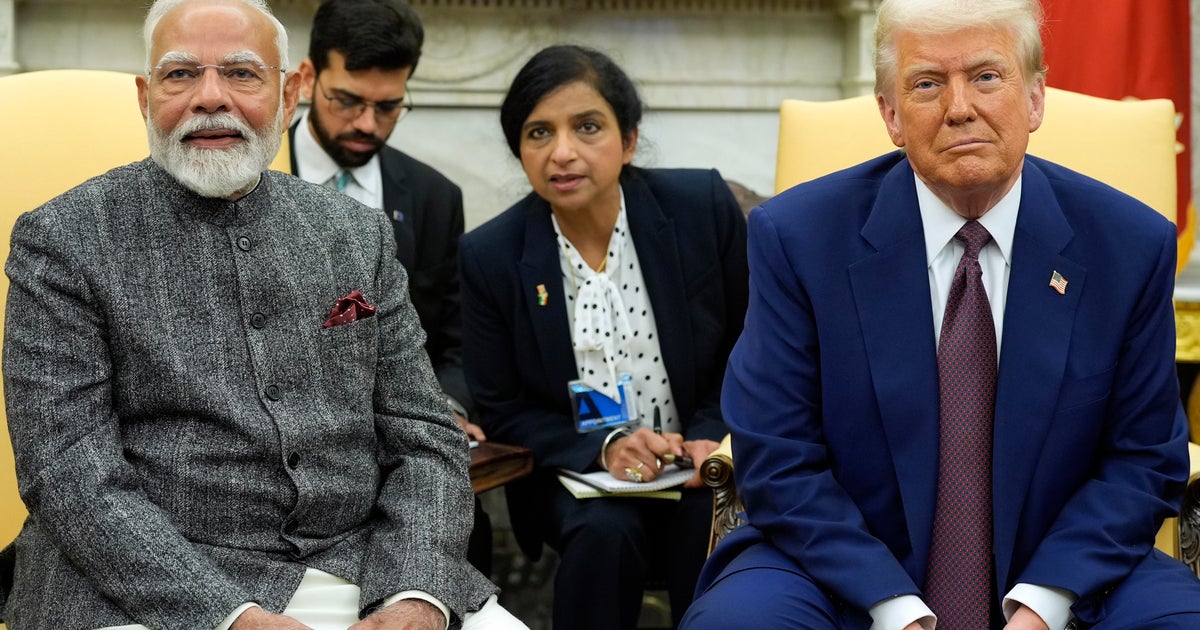More than 60 nations gathered in Paris this week for an AI summit that was meant to bring world powers together to set a global agenda on the rapidly developing technology. Instead, it showed that some are diverging sharply.
Over the last several years, the European Union has pursued aggressive regulation of Big Tech, investigating major American companies like Google and Apple and passing several laws that facilitate closer oversight of their activities. Meanwhile, the Trump administration has made tech deregulation a central part of its agenda, promising to remove red tape that the industry says is stifling to innovation.
So when dozens of countries including Canada, China, Australia and France signed a document promising an accessible and inclusive approach to AI development, the U.S. opted not to — but so did the U.K., which raised eyebrows among attendees and in the media.
“What we’re seeing here is this tension between, on the one hand, the desire to drive the economy through AI innovation, and on the other hand, the need to regulate it,” explained Teresa Scassa, a professor at the University of Ottawa who holds the Canada Research Chair in Information Law and Policy.
Vance rails against ‘excessive’ regulation
The U.S., for example, is home to major AI companies “who want free reign to innovate, and where that innovation will put them at the forefront of driving the economy. Any attempts to regulate are going to slow them down,” she said.
Meanwhile, the U.K. — which Scassa notes has seen an economic downturn since Brexit — is trying to position itself as an alternative to the EU’s more conservative approach to AI regulation, she said.
A spokesperson for U.K. Prime Minister Keir Starmer said that the country would only ever invest in initiatives that are in its “national interests.”
The American stance on AI regulation was made much clearer through comments by Vice-President JD Vance, who spoke at the summit and criticized the EU’s conservative approach, saying that excessive regulation would kill the industry.
He then appeared to warn countries from working with China, as doing so would make them vulnerable to espionage, he said.
China, long criticized for its human rights practices, signed onto the summit’s main document. That surprised some observers, as the pledge called for a sustainable and human rights-oriented approach to AI development.
U.S. President Donald Trump raised a record amount of corporate donations for his inauguration, millions of which were donated by CEOs of major tech companies like Google, Apple, Amazon and Meta. Andrew Chang explains the shift in Trump’s relationships with these industry leaders since his first term, and the symbolism of their proximity to the president.
Images provided by Getty Images, Reuters and The Canadian Press.
European Commission President Ursula von der Leyen pushed back on Vance’s characterization of its regulatory environment, saying at the summit she hopes Europe will be an AI leader, but with its own “distinctive approach” in getting there.
She and other European officials have recently challenged the perception that the EU’s relatively tough regulations means it isn’t open to innovation. Quite the contrary, she said at the Paris event.
“The AI race is far from over. Truth is, we are only at the beginning. The frontier is constantly moving, and global leadership is still up for grabs.”
Macron says EU is lagging behind
Florian Martin-Bariteau, an associate law professor at the University of Ottawa who attended the summit, says France also took a different attitude than what guests were expecting.
French President Emmanuel Macron, who co-chaired the summit alongside India’s Narendra Modi, struck a bullish tone, largely breaking with the rest of the EU’s messaging. He suggested that the economic coalition may have gone too far in regulating the technology, saying its countries are “lagging behind.”
But likely “the biggest surprise for many people” was that the final declaration signed at the Paris Summit — a non-binding pledge that functions more as a strong political, agenda-setting statement — was lighter than expected, with few details on regulation, safety and misinformation.
A major disruption hit the artificial intelligence sector this week as DeepSeek, a China-based chatbot, unveiled its latest AI models—trained for just $6 million. That’s a fraction of the cost U.S. companies typically spend, sparking turbulence among big tech players and sending their stocks plummeting. Philippe Beaudoin, AI researcher and CEO of Numeno.ai, weighs in on what this means for the industry.
A similar summit held in London last summer focused on AI’s potential existential risks, said Martin-Bariteau. That seemed to be less of a priority this time around, he said, demonstrating a shakeup in how countries were approaching regulation.
“It could be a wonderful technology, but we also seen in the past months that, depending on how it’s developed or who uses such technology, it can be quite risky and have a real impact,” he said, specifically citing concerns over its potential use in global election interference.
Other critics of the document mused that safety and inclusion language in the final agreement had been downplayed to appeal to the new U.S. administration and its Big Tech allies. Some reports suggested that the U.K. was following the U.S.’s lead in not signing it — the U.K. denied this in a statement, vaguely citing national security concerns.
Companies spooked by over-regulated countries
Some major tech companies have pulled out of regions that they perceive as being over-regulated, said Olivier Blais, co-founder of Montreal consulting firm Moov AI.
That’s been the case in the European Union, which passed its own regulation of the technology last year through the EU AI Act. It also passed a competition law called the Digital Markets Act, which was partly enacted in 2023. Apple cited the latter bill for why it hasn’t made features including Apple Intelligence widely available in the region, he said.
The growing influence of Silicon Valley billionaires was on full display at U.S. President Donald Trump’s inauguration, adding fuel to his predecessor’s warning of the rise of a ‘tech industrial complex’ in America. CBC’s Jonathan Montpetit breaks down how the world’s richest tech bros became Trump backers and what they want in return.
That creates what those in the AI industry refer to as a commercial barrier, he added. “From a consumer standpoint, it’s bad because you don’t have access to these tools,” he said.
But that lack of access can also make people think more critically about the technology: “Is it really responsible? Is it really safe to be using these tools? It’s a very legitimate question,” he said. “So many people are using these tools without asking themselves questions.”
Regulatory environment increasingly complex
Scassa, the UOttawa professor, said the divergence between the U.S. and the EU in regulating artificial intelligence puts Canada in between its two largest trading partners, with several existential questions hanging in the balance.
Canada doesn’t currently have comprehensive legislation that regulates AI; the federal government proposed such a bill last year, but it died when Parliament was prorogued in January. Questions of how to regulate — if at all — have been up in the air since then.
As the technology becomes more complex, so does the regulatory environment, she added, with concerns in consideration including public security, mis- and disinformation and climate impact.
“Some of the priorities are shifting and they may shift differently for different countries.”









